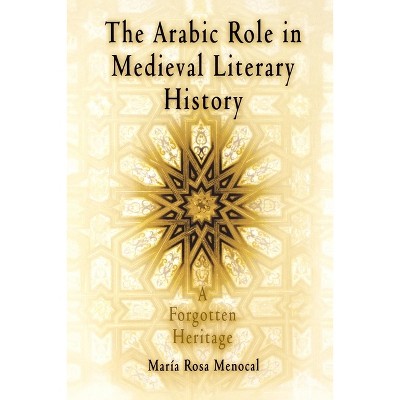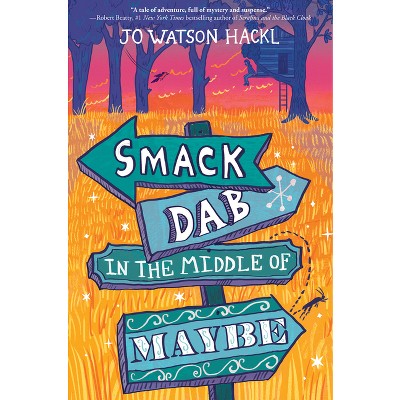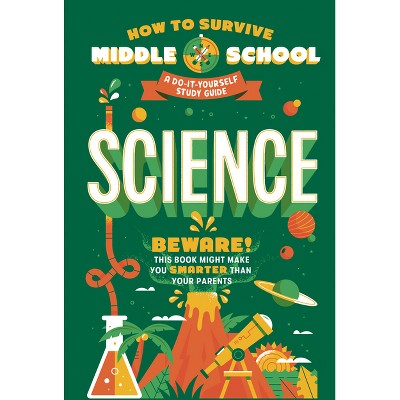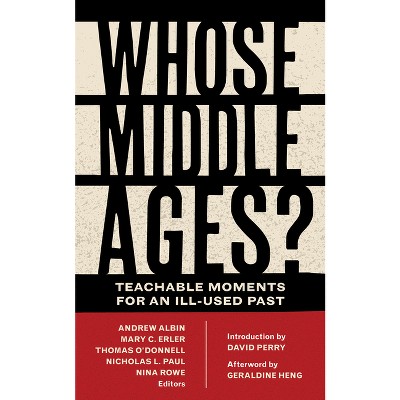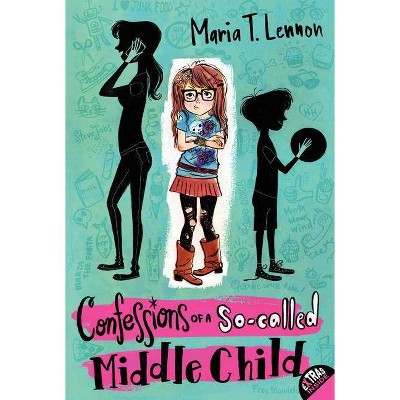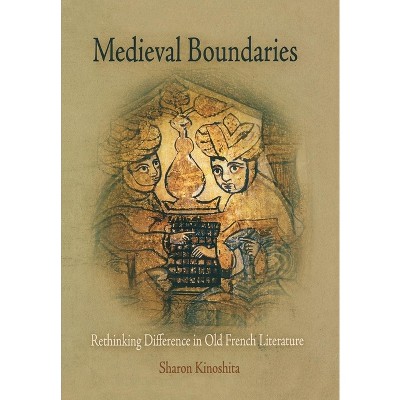Sponsored

What Kind of a Thing Is a Middle English Lyric? - (Middle Ages) by Cristina Maria Cervone & Nicholas Watson (Hardcover)
In Stock
Sponsored
About this item
Highlights
- What Kind of a Thing Is a Middle English Lyric?
- About the Author: Cristina Maria Cervone is Associate Professor of English at the University of Memphis.
- 560 Pages
- Literary Collections, Medieval
- Series Name: Middle Ages
Description
About the Book
"What Kind of a Thing is a Middle English Lyric? considers issues pertaining to a corpus of several hundred short poems written in Middle English between the twelfth and early fifteenth centuries. The chapters draw on perspectives from varied disciplines, including literary criticism, musicology, art history, and cognitive science. Since the early 1900s, the poems have been categorized as "lyrics," the term now used for most kinds of short poetry, yet neither the difficulties nor the promise of this treatment have received enough attention. In one way, the book argues, considering these poems to be lyrics obscures much of what is interesting about them. Since the nineteenth century, lyrics have been thought of as subjective and best read without reference to cultural context, yet nonetheless they are taken to form a distinct literary tradition. Since Middle English short poems are often communal and usually spoken, sung, and/or danced, this lyric template is not a good fit. In another way, however, the very differences between these poems and the later ones on which current debates about the lyric still focus suggests they have much to offer those debates, and vice versa. As its title suggests, this book thus goes back to the basics, asking fundamental questions about what these poems are, how they function formally and culturally, how they are (and are not) related to other bodies of short poetry, and how they might illuminate and be illuminated by contemporary lyric scholarship. Eleven chapters by medievalists and two responses by modernists, all in careful conversation with one another, reflect on these questions and suggest very different answers. The editors' introduction synthesizes these answers by suggesting that these poems can most usefully be read as a kind of "play," in several senses of that word. The book ends with eight "new Middle English lyrics" by seven contemporary poets"-- Provided by publisher.Book Synopsis
What Kind of a Thing Is a Middle English Lyric? considers issues pertaining to a corpus of several hundred short poems written in Middle English between the twelfth and early fifteenth centuries. The chapters draw on perspectives from varied disciplines, including literary criticism, musicology, art history, and cognitive science. Since the early 1900s, the poems have been categorized as "lyrics," the term now used for most kinds of short poetry, yet neither the difficulties nor the promise of this treatment have received enough attention. In one way, the book argues, considering these poems to be lyrics obscures much of what is interesting about them. Since the nineteenth century, lyrics have been thought of as subjective and best read without reference to cultural context, yet nonetheless they are taken to form a distinct literary tradition. Since Middle English short poems are often communal and usually spoken, sung, and/or danced, this lyric template is not a good fit. In another way, however, the very differences between these poems and the later ones on which current debates about the lyric still focus suggest they have much to offer those debates, and vice versa.
As its title suggests, this book thus goes back to the basics, asking fundamental questions about what these poems are, how they function formally and culturally, how they are (and are not) related to other bodies of short poetry, and how they might illuminate and be illuminated by contemporary lyric scholarship. Eleven chapters by medievalists and two responses by modernists, all in careful conversation with one another, reflect on these questions and suggest very different answers. The editors' introduction synthesizes these answers by suggesting that these poems can most usefully be read as a kind of "play," in several senses of that word. The book ends with eight "new Middle English lyrics" by seven contemporary poets.Review Quotes
"Cristina Maria Cervone and Nicholas Watson's elegant, multidisciplinary volume considers a central question bedeviling lyric theory: how to identify this multimodal, performative genre. The book, which includes eleven chapters, two response essays, and a chapbook from contemporary poets, is a masterful contribution to the field of lyric studies."-- "Speculum"
"What Kind of Thing Is a Middle English Lyric? asks scholars and poets to rethink not only the Middle English lyric (especially between the late twelfth and late fourteenth centuries) from the ground up, but the generic and historiographic contours of Medieval Studies, lyric studies, and poetry altogether...In addition to serving as a worthy reference source for the Middle English lyric, indexed as it is, the book's stronger impulse of troubling the lyric forces deeper, more flexible engagements with poetry in theory and practice, past and present...Altogether, this company of scholars and artists exemplifies collaboration at its finest."-- "Early Middle English"
"[T]his stimulating book...aim[s] to rebuild the study of Middle English lyric from the ground up. The thirteen chapters proceed from foundation to rooftop...The book is a passionate invitation to plunge into Middle English lyric. It raises countless questions. It is certain to spur continuing, vigorous cultivation of its field."-- "Modern Philology"
"This outstanding collection of essays boldly reconceptualizes Middle English lyric, brilliantly illuminating its formal intricacies, historical contexts, and power. Among other subjects, the essays explore lyric multilingualism, wonder, sonic richness, material inscription, narrativity, dialogism, performativity, figuration, and intersubjectivity. Destined to hold a distinguished place in studies of poetry and poetics, this book deserves to be widely read and relished by anyone interested in new angles of approach to poetry."-- "Jahan Ramazani, author of Poetry in a Global Age"
About the Author
Cristina Maria Cervone is Associate Professor of English at the University of Memphis.
Nicholas Watson is the Henry B. and Anne M. Cabot Professor of English at Harvard University.
Shipping details
Return details
Trending Literary Fiction






